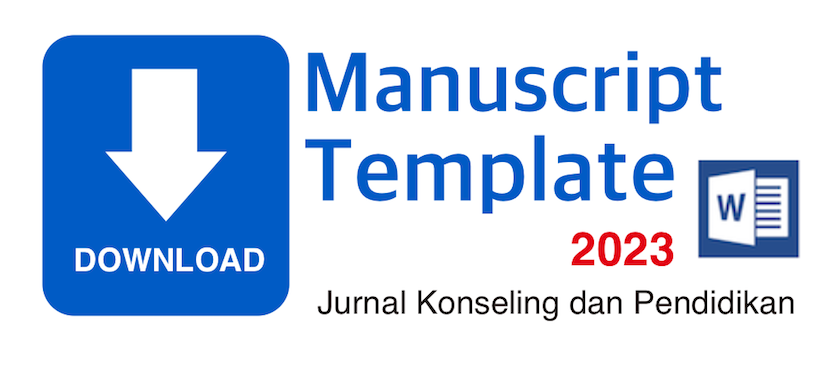Whatsapp Addiction Affecting Students at Politeknik Sultan Mizan Zainal Abidin
 ), Norhafiza Binti Idris(2),
), Norhafiza Binti Idris(2), (1) Politeknik Sultan Mizan Zainal Abidin, Malaysia
(2) Politeknik Sultan Mizan Zainal Abidin, Malaysia
 Corresponding Author
Corresponding Author
DOI : https://doi.org/10.29210/127900
Full Text:
 Language :
Language :
Abstract
Nowadays, surfing the internet across virtual borders became a must to almost every layer of society. The existence of various social sites like Facebook, Twitter, Instagram and WhatsApp as medium to communicate became widely used because the internet is accessible to anyone regardless of place and time. Excessive use of WhatsApp is addictive and it gave different impact in terms of advantages and disadvantages to the users. Highlights from this, this paper work was done to assess the influence of the excessive use of WhatsApp on the attitude of students of PSMZA. A total of 250 students were randomly selected which consists of male and female students. The methodology used is descriptive method and quantitative approach that is using the questionnaire instrument consisting of three parts, namely part A respondent's demographic information, part B of the information level of addiction to the use of WhatsApp and part C information relating to the attitude of students either positive or negative towards their environment. The data collected is processed through the software IBM SPSS Statistics version 23. From the study it was found that the influence of the use of excessive WhatsApp still had positive impact on the attitudes of students of PSMZA. However, female students were more addicted to WhatsApp compared to male students.
Keywords
References
Abd Ghoni, S., Othman, A. & Abas, N. (2017). Kajian Keberkesanan Penyampaian Maklumat Di Jabatan Kejuruteraan Elektrik, Polimas. e- Proceeding National Innovation and Invention Competition Through Exhibition (iCompEx17),.
Afgani. Y et all (2015).Penyalahgunaan Aktiviti Internet dan Ketagihan WhatsAppp: Suatu Analisa Konseptual. Proceeding of International conference on Addiction Science : Holistic approach on the misuse and addiction management. Retrieved from https://www.academia.edu
Ahmad Taufiq Ma’mun. (2015). Efektivitas Pembelajaran Bahasa Arab Melaui Media Social whatsApp di Program BISA (Belajar Islam & Bahasa Arab). Tesis Sarjana , Jurusan Pendidikan Bahasa Arab, Fakultas Ilmu Tarbiyah & Keguruan Universiti Islam Negeri Sunan Kalijaga
Che Noh, C. H. & Ibrahim, M. Y. (2014). Kajian Penerokaan Buli Siber Dalam Kalangan Pelajar UMT. Procedia - Social and Behavioral Sciences, 134, 323–329. doi:10.1016/j.sbspro.2014.04.255
Cohen, L., Manion, L., & Morisson, K (2011). Research Methods in Education (7th ed., Vol. 55). New York : Routledge. http://doi.org/10.1111/j.1467-8527.2007.00388_4.x
Fauzi, N. (2017). Penggunaan Media Sosial Dalam Dunia Tanpa Sempadan : Suatu Kebaikan Atau Keburukan ? Institut Latihan Kehakiman dan Perundangan,.
Ghani Hj Talib, (1996). Pembinaan Instrumen: Ceramah Kursus Penyelidikan Pendidikan, Anjuran Bahagian Pendidikan Guru, Kementerian Pendidikan Malaysia, 12-13 Ogos 1996.
Hassan, J. & Raja Abdul Rashid, R. S. (2012). Ketagihan penggunaan internet di kalangan remaja sekolah tingkatan 4 di bandaraya Johor Bahru. Journal of Technical, Vocational & Engineering Education, 6(June), 23–43.
Hj.Mumin, N. H. (2017). Globalisasi dalam teknologi maklumat: tumpuan terhadap dakwah melalui biografi wanita. Journal Article,.
Hussin, N., Norul ’Azmi, N. A. & Mat Daud, M. (2017). PEMBELAJARAN KOLABORATIF MELALUI APLIKASI TELEFON PINTAR DALAM PEMBELAJARAN NAHU. e-Jurnal Penyelidikan Dan Inovasi, 4(1), 43–63.
Ismail,NF. & Ashaari,MF. (2018. Komunikasi Dakwah Dalam Interaksi Melalui WhatsApp.Fikiran Masyarakat, (Januari) , 6(1), 33 - 39
Lee Kuok Tiung, Meri, A., Mat Nayan, L. & Othman, S. S. (2016). Kegunaan Dan Kepuasan Portal Berita Dalamkalangan Beliamalaysia. Kegunaan Dan Kepuasan Portal Berita Dalamkalangan Beliamalaysia, 32(2), 790–816.
Manap, J., Hamzah, M. R., Amin, A. S., Mohd Izani, N. N., Idris, F., Hamjah, S. H., Tambi, N. et al. (2016). Penggunaan dan Implikasi Media Sosial Terhadap Remaja Generasi Z. International Conference on Social and Economic Development, (November), 1–12. Retrieved from https://www.researchgate.net/publication/309668766
Mohamad Najib Abdul Ghafar, (1999). Penyelidikan Pendidikan. Skudai: Penerbit UTM.
Moro, H. K. E. P. (2016). Pengaruh Penggunaan Whats Apps Messenger terhadap prestasi belajar Mahasiswa kelas KKH di PBIO FKIP UAD (August), 1–9. Retrieved from https://www.researchgate.net/publication/309668766
Musa, A. & Tasir, Z. (2010). Implikasi alatan rangkaian sosial terhadap proses pengajaran dan pembelajaran. Edupress 2010, 1–14. Retrieved from http://eprints.utm.my/14936/
Musafa, N., Wan Mahmud, W. A., Ahmad, F., Mahbob, M. H. & Abd.Rahim, M. H. (2013). Kebergantungan Internet Dan Aktiviti. Kebergantungan Internet Dan Aktiviti Online Remaja, 29(1), 199–212.
Mustafa, KOÇ. (2011). Internet Addiction And Psychopatology. The Turkish Online Journal of Educational Technology, 10(1) 143-148
Piaw, C. Y.(2012). Asas Statistik Penyelidikan Edisi Ke-2. doi:10.1017/CBO9781107415324.004
Putri, W. S. R., Nurwati, R. N. & Budiarti S, M. (2016). 7 Pengaruh media sosial terhadap perilaku remaja. Prosiding ks:riset & pkm, 3(1), 1–154.
Ramli, M. A., Hamdan, M. N., Jamaluddin, M. A. & &Aminuddin, A. Q. (2015). Penyebaran Maklumat Palsu Berkaitan Produk Halal Dan Implikasinya Terhadap Industri Halal. Conference Paper, (April), 1–17. doi:10.13140/RG.2.1.3308.3361
Rohimah, S. (2017). Efektivitas Manajemen Komunikasi Dakwah Melalui Grup Whatsapp Massenger Propagation Communication Management Effectiveness Dakwah Whatsapp Group Massenger Siti Rohimah A . Pendahuluan Komunikasi merupakan proses penyampaian pesan oleh komunikator kepada k. Prosiding Komunikasi Penyiaran Islam, 3(1), 101–106.
Rusinah Joned & Sudirman Asmadi, (2003). Metodologi Penyelidikan: Aplikasi Statistik dan Ethnograph Untuk SOSIAL SAINS. Modul Latihan.Hakcipta Terpelihara 2003.
Saari, N. A. S. & Mahiyaddin, R. (2017). Analisis linguistik terhadap penggunaan media sosial dalam kalangan pelajar di ipts 1(1), 151–165.
Syed Chear, S. L. (2017). Pengajaran dan Pembelajaran Melalui Aplikasi Whatsapp dan Telegram di Universiti Swasta. Jurnal Pendidikan Malaysia, 42(2). doi:DOI: http: //dx.doi.org/10.17576/JPEN-2017-42.02-02 Pengajaran
Tahir, Z. & Mohd.Yusof, M. N. (2017). Kepentingan Penggunaan Media Sosial Teknologi 12(3).
Wan Embong, W. H., Yaakob, Z., Rohani, Z. H., Abidin, M. & Ibrahim, F. (2015). KajianTinjauan : Buli Siber di Kalangan Mahasiswa Universiti Teknologi Malaysia 1–20.
 Article Metrics
Article Metrics
 Abstract Views : 1612 times
Abstract Views : 1612 times
 PDF Downloaded : 466 times
PDF Downloaded : 466 times
Refbacks
- There are currently no refbacks.



